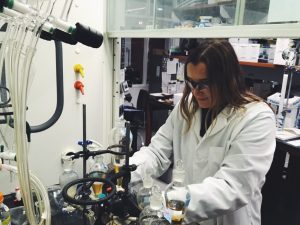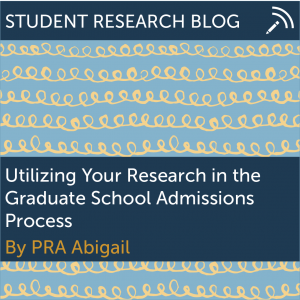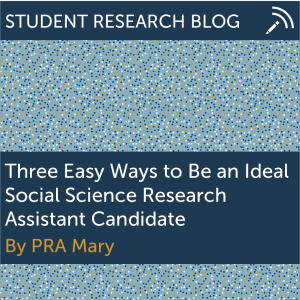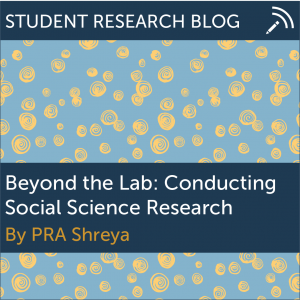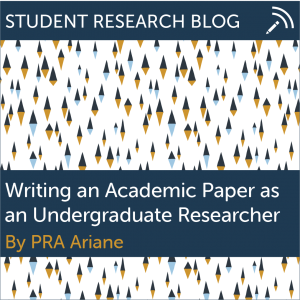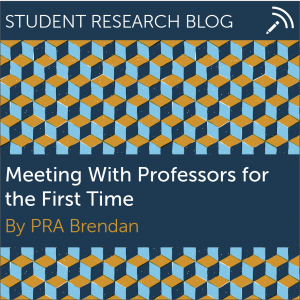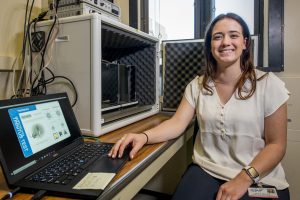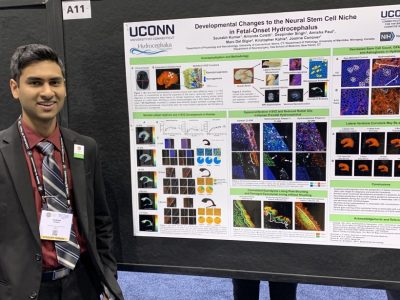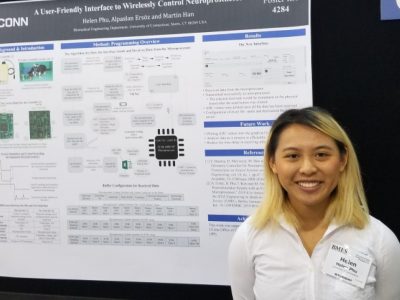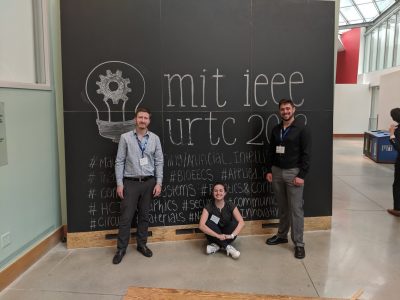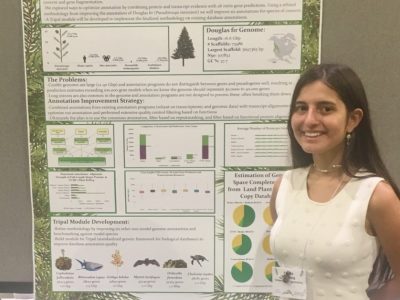Kailey Huot ’19 (CLAS) earned her bachelor’s degree last December and reiterates the need for persistence in seeking out a research experience.
Since I was in grade school I always knew I had a special interest in the math and science fields, but it wasn’t until high school when I figured out what I really wanted to do in the future; chemistry. My high school teacher completely sparked my interest in the concepts of chemistry, and I also had a strong interest in medicine, eventually combining both fields into a career goal of pharmaceutical sciences.
When I got to college, I was immediately enrolled into a First Year Experience course where several chemistry majors were told of different opportunities in our major, including research opportunities. I understood that UConn had recently invested money into STEM fields the year before I came to the university, but I did not understand the level of opportunity for each student to acquire a position as an undergraduate research assistant, not knowing that UConn was a Tier 1 research-based campus. I was instructed to look through the faculty members on the UConn Chemistry website, and started reading about different research projects and their publications. One of the first faculty members I clicked on was a woman from the Pharmacy Building named Dr. Marcy J. Balunas. Her research mainly focused on Natural Products in the Department of Pharmaceutical Sciences, and it immediately caught my eye. Not only was the research under pharmaceuticals, but she was studying different marine bacteria for potential bioactivity against pathogenic compounds, combining my interests of chemistry, medicine, and sustainability into one research opportunity.
I emailed her within two weeks of the start of my freshman year, asking if there were undergraduate positions open in her lab, as well as reading her most recent publication and sparking a conversation about her work with Hawaiian bobtail squids. To my dismay, she did not have any openings for undergraduates at the time, but told me to email her once the time to pick classes neared. Again, she didn’t have openings for the spring semester either, but I decided to continue our communication. I read several more of her publications, and would send her an email every few weeks with more information and questions about the research. By the time picking classes in the spring came around, she finally brought me in for a meeting with her, and was offered a position to start at the beginning of my sophomore year.
In the lab, I had the privilege of working with both microbiology and organic chemistry instrumentation and protocols. Strains of bacteria were first grown on an agar plate containing several nutrients to help the bacteria grow. From there, bacteria were transferred to liquid media and the culture scale increased, allowing more area for bacteria to grow. Once the cultures were scaled up to 500mL volumes, they were brought into the organic chemistry lab for extraction. With a main focus on more non-polar compounds, extractions using resin beads were able to trap target, non-polar molecules, while eluting unwanted polar molecules. The isolation process yielded a more purified version of the product, eventually preparing for tests of bioactivity and structure elucidation. In order to analyze the bioactivity of a bacterial strain, compounds were commonly tested against bacterial and fungal compounds such as Candida or MSSA. Upon doing so, my research found very little bioactivity in Hawaiian Bobtail Squid bacteria, despite indications of preliminary research.
Last year I made the decision to graduate a semester early, and was unable to give the same amount of time to the research lab as I had in the past, so I am no longer working in the lab. However, the experience and confidence I gained through working as an undergraduate in research was irreplaceable, and the skills I acquired will stay with me throughout my career as a chemist. This past summer I worked at Pfizer in Groton, CT as an organic synthetic chemist, and I owe a large portion of my success as an intern to the research opportunities that UConn has brought me. I will be graduating in December of 2019, and I have accepted a full-time position back at Pfizer in Groton to continue the research I had worked on over the summer. Without resources such as the OUR program at UConn, I wouldn’t be in the same position I am today, and I am eternally grateful for the opportunities that UConn and the Office of Undergraduate Research has brought me.
For anyone looking into a research position at UConn, my biggest piece of advice is to make yourself known to faculty members. If you continuously show your interest and excitement about the subject, your work will pay off and research faculty will be eager to hire someone so interested in what they are doing.
